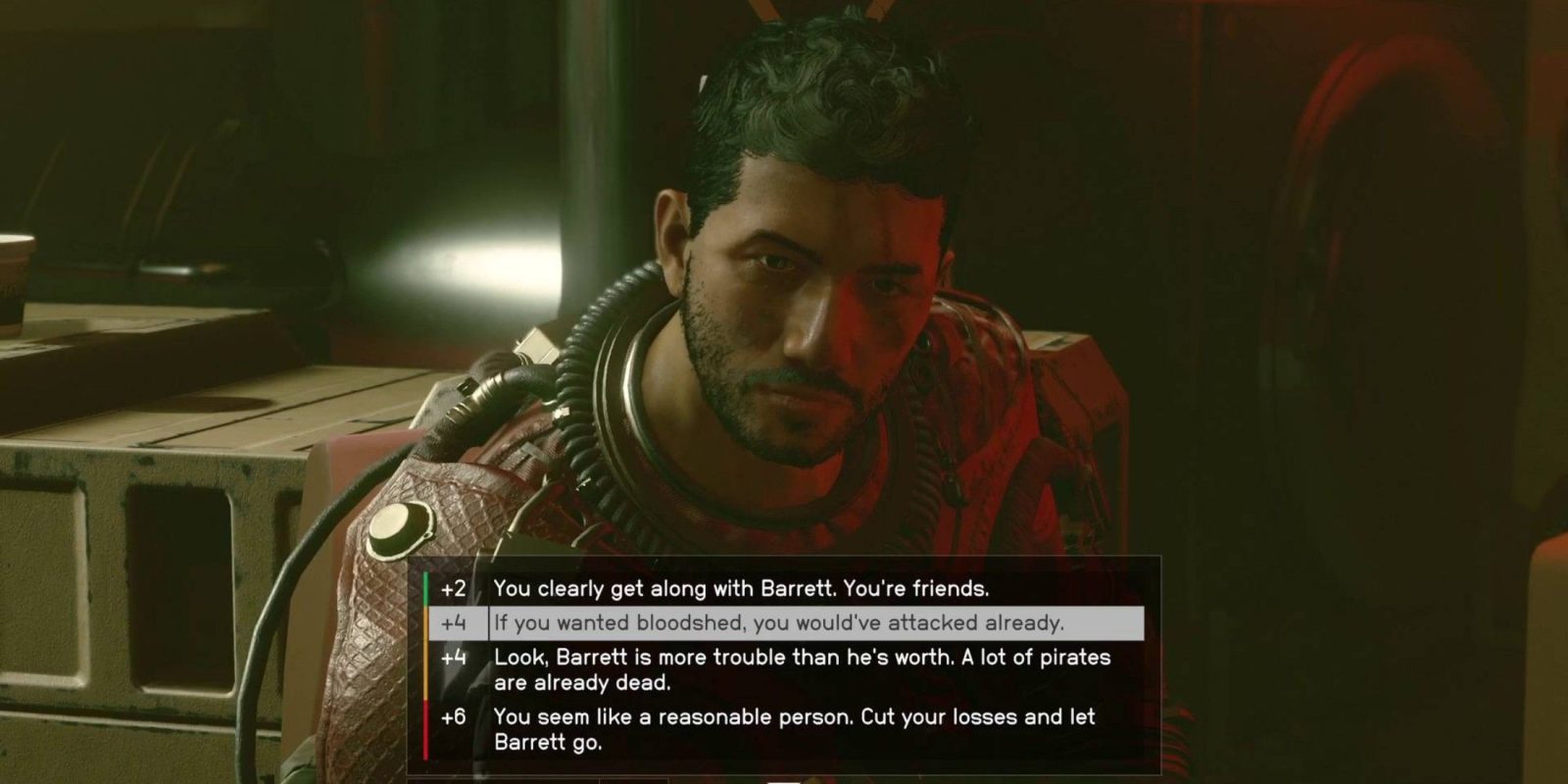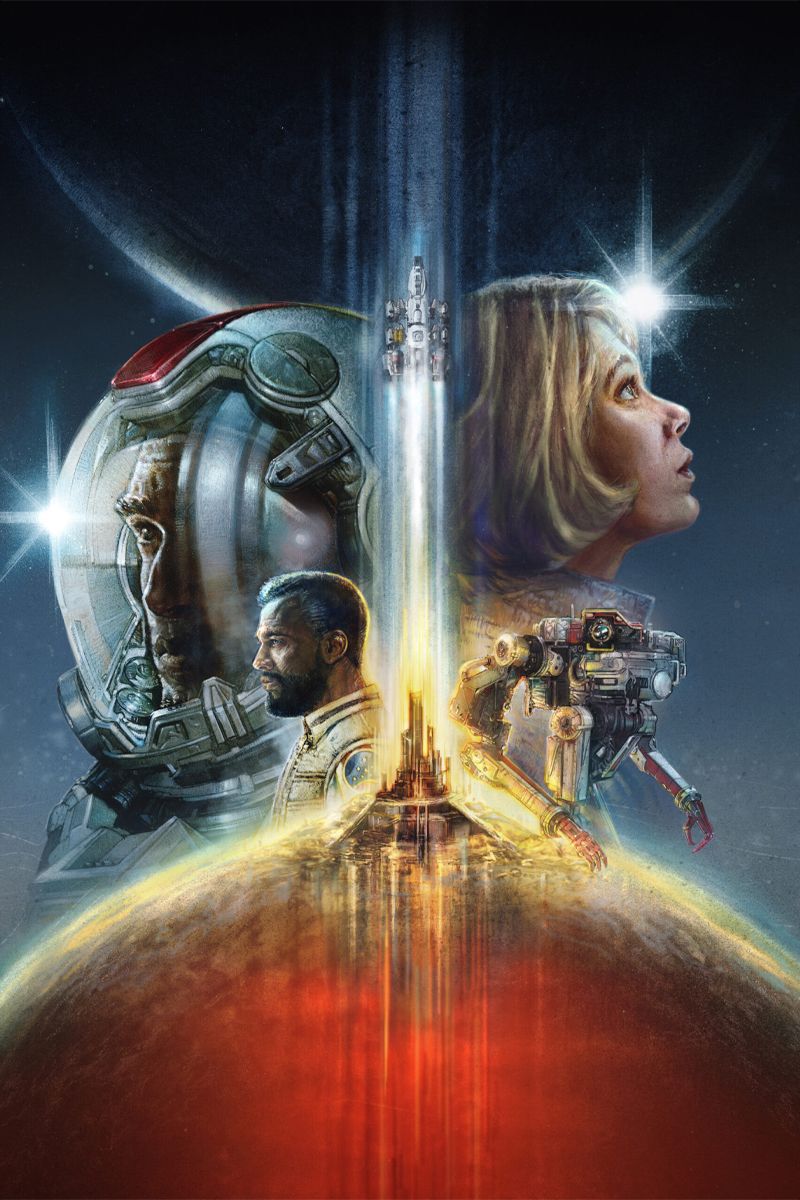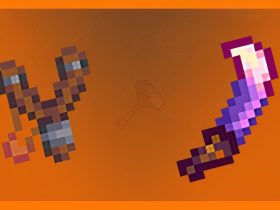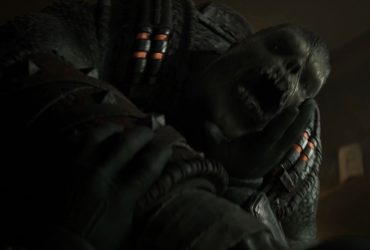Dialogue systems are often the backbone of western RPGs, which is why they are scrutinized so heavily in games like Starfield. While Starfield may be an improvement over Bethesda’s past games when it comes to robust dialogue trees, it’s also sadly limited and shallow in a lot of ways, and future BGS titles ought to work a bit harder to push the envelope.
When discussing dialogue systems in Bethesda titles, it’s impossible not to mention Fallout 4. For many players, the stripped-back and streamlined dialogue features of the fourth Fallout were emblematic of the game’s most fatal flaws: dialogue is basic, undermines player choice, and fails to function as a meaningful role-playing device. CRPGs preceding Fallout 4, like Planescape Torment or even the older games in the Fallout series, show just how pivotal a good dialogue system can be. They allow players to mold their character to their whim while interfacing with a world that feels alive; advanced, multifaceted dialogue trees that lead to impactful consequences can be the difference between a mildly entertaining game and an unforgettable, infinitely replayable experience. Starfield might get closer to this ideal than a game like Fallout 4, but Bethesda Game Studios still has a long way to go.

Related
After Shattered Space, Starfield’s Next DLC Can Go Back to Basics
While Starfield’s Shattered Space DLC leaned heavily into horror, the next expansion can look to return to more of its core genre components.
Fallout 5 Needs To Double-Down On Good Dialogue
Starfield Moves In the Right Direction, But Its Dialogue Is Still Shallow
One of the biggest criticisms of Fallout 4‘s dialogue options is how they can boil down to a selection of one-dimensional options. More often than not, talking to NPCs in Fallout 4 can be more a matter of deciding whether the player-character is going to be nice, rude, or inquisitive, rather than sifting through more nuanced and believable approaches. Instead of having to actually think about what they want the protagonist to say, factoring in variables like the personality of the NPC and their relationship to the objective at hand, players are funneled into a particular outcome, and their only real choice is what “flavor” of conversation they want to have, not the content of the conversation itself.
It would be nice to say that Starfield‘s dialogue reverses these underwhelming design choices, but reality is unfortunately much less satisfying. While Starfield does away with the four-option dialog system of Fallout 4, and the removal of a voiced protagonist allows for players to use their imagination when it comes to essential aspects of conversation like tone and inflection, the decisions posed by the game are still rather simplistic. Specifically, dialogue options still lack the impact of a game like Disco Elysium or Baldur’s Gate 3: what players choose to say doesn’t often have real consequences on the outcome of a certain quest or interaction, but only on the next line of dialogue from the NPC in question. Once again, it’s a matter of selecting what “flavor” of conversation a player wants to have, not influencing what the meat of the conversation actually is.
Fallout 5 Desperately Needs a More Revolutionary Dialogue System
In a word, Starfield‘s dialogue options can be described as outdated. At their best, they are reminiscent of Skyrim‘s, but never an evolution of them. Bringing back the Baldur’s Gate 3 comparison, RPG players are coming to expect dialogue that meaningfully and unexpectedly alters the outcome of interactions, story moments, and character relationships—something that can’t be said about Starfield‘s more inconsequential system. Dialogue takes up a lot of real estate in Bethesda games, so Fallout 5, The Elder Scrolls 6, and, god willing, Starfield 2, will need to get a bit more ambitious and experimental to justify such heavy inclusion.















Leave a Reply